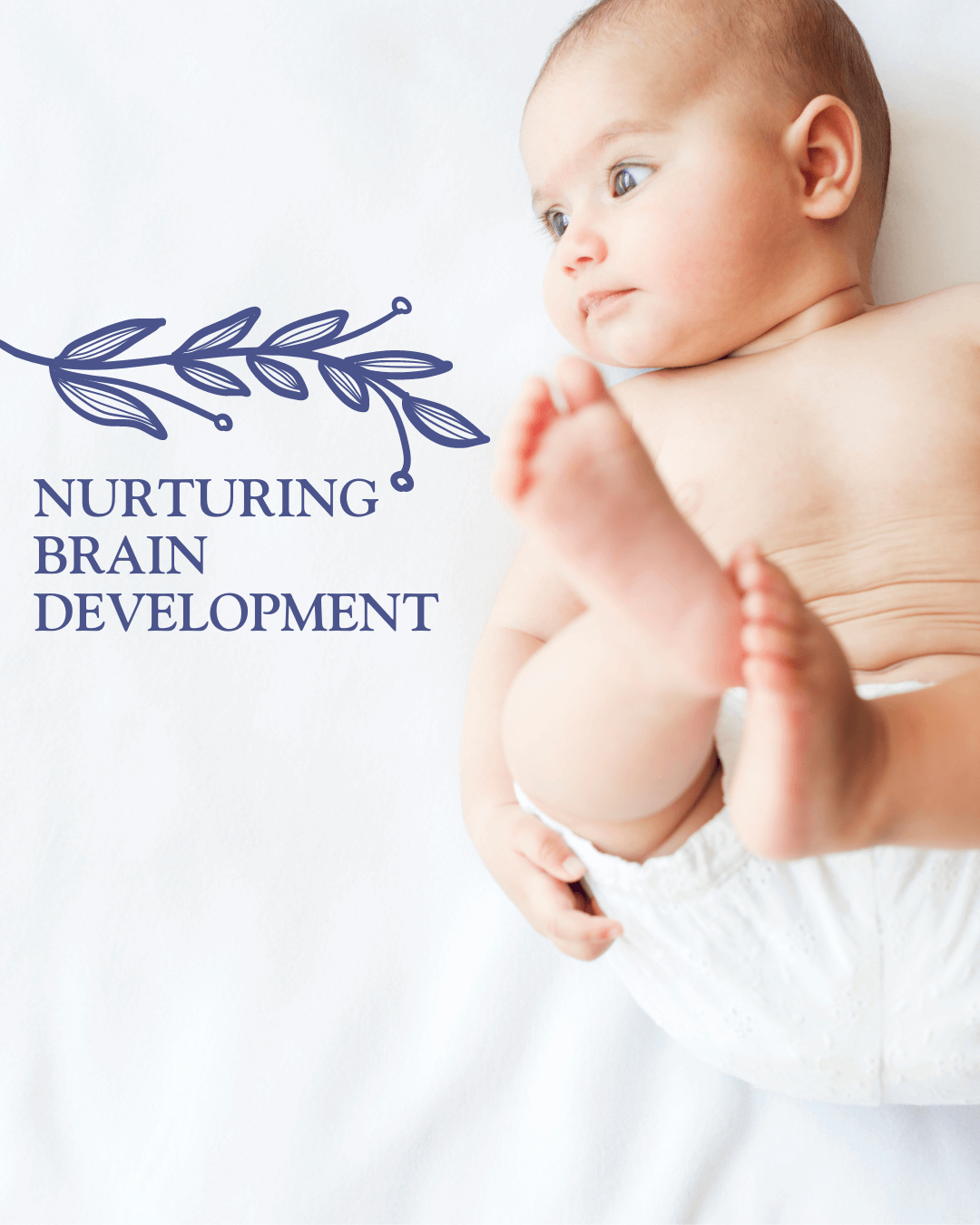Typical Age-Specific Patterns


Their little brains are quickly growing during this stage of their life. Simple things for you and me, like object permanence, cause and effect, and different sounding voices are all brand new concepts to them and take time for them to understand. They can quickly become attached to their primary caregiver and not be flexible at all when it comes to being with anyone else.
Note: I know from experience that the attachment a new baby feels for their mom and the fact that often they don’t settle for anyone else can be especially tough for new mamas dealing with postpartum hormones and sleep deprivation. I, myself, was found many times saying “what is wrong with my baby?!” or “what is wrong with me?!” because I just so desperately needed a break. I pray you find your village and all of the help that you need. This can be a really tough spot–please reach out if you’re finding yourself feeling lost. We have a whole community group focused on nurturing moms. There are so many resources available to help you.
Babies of all ages can also become overstimulated very easily because they can’t filter out irrelevant sensory input the way grown-ups can. So, loud or unfamiliar scenes can be super challenging to them. In addition, they can’t yet communicate by saying “mom, there is too much going on and my brain is struggling to filter unnecessary sights and sounds! This is making me feel overwhelmed” They communicate this kind of feeling through meltdowns, difficulty going to sleep, and all around crankiness.
As babies get older it is not uncommon for them to enter a period of time where they are aware that they can’t get where they want to go fast enough and it frustrates them. This is right around the time they start walking. It may cause frustration and tantrums because they know what they want but are struggling to communicate with you or achieve it themselves. This frustration is actually valuable because it is part of what drives them to eventual growth and success in achieving or communicating about what they want. But the process can be challenging–once again, reach out for the parenting support you need to help you stay balanced through the ups and downs.

NURTURING BRAIN DEVELOPMENT
- Talking to your child like they can understand what you’re saying to increase the connection in your relationship–they’re not any less of a person to you than another grown-up is
- Taking their cries seriously and working to help understand what they are communicating
- Being intentional about your facial expression around them as they are able to pick up on and understand body language much better than most people think
- Narrating what you are doing to help them learn language and conversation
- Being patient with seemingly annoying behaviors–repetitive dropping, screams, throwing things, etc. and understanding it is all a part of maturity and increasing intelligence
- Being mindful of the sensory input around them and how much they can handle before needing a break
- Having back and forth conversations with them even if their end of it is mostly babbles
- Providing safe opportunities for them to practice dumping things out, throwing things, etc. (perhaps a basket of soft toys, for example)
- Keeping them safe when they exhibit behavior that could hurt themselves such as head banging or destroying things.
- Giving some level of structure and predictability to help them feel safe
COMMON BEHAVIORS
- Babbling
- Thriving on repeat play (games like peek-a-boo)
- Separation anxiety/attachment to one person
- Very attached to specific items such as a lovey, pacifier, blanket
- Practicing mobility without a concept of safety/boundaries (playing near stairs, climbing up too high, getting stuck etc)
- Experimenting with repetitive or intentional dropping and throwing of things
- Feeling frustration with slower mobility than the big kids around them
- Viewing people/animals as objects
- Desiring to explore but struggling because they don’t want to leave you
- Wanting to say no but not enjoying it when they hear “no” from you
- Ramping up the volume when it comes to screaming as they get older


TYPICAL AGE-SPECIFIC PATTERNS
0-3 Months: Bonding and Early Communication
- Newborns primarily sleep, eat, cry, and bond through skin-to-skin contact and eye contact.
- Despite limited abilities, infants can understand and communicate through different cries and movements.
- They become more responsive to facial expressions, including the "social smile," and often start laughing around 3 months.
- Some babies may exhibit reflexes like rooting for the breast or bottle, indicating hunger or comfort.
- Early vocalizations such as cooing and gurgling begin to emerge, serving as precursors to later speech development.
4-6 Months: Exploration and Communication Development
- Babies begin babbling more vowel and consonant combinations, signaling an early step toward speech.
- Increased interest in surroundings leads to attempts to reach and grab objects.
- Recognition of their name emerges, and interactive games like peekaboo become enjoyable.
- Introduction of solid foods may occur during this period, marking the beginning of a transition to solid foods.
- Infants may start rolling over from front to back and back to front, demonstrating increased physical coordination.
7-9 Months: Mobility and Attachment Formation
- Infants become aware of their separateness, displaying clinginess and shyness around strangers.
- Most babies learn to crawl, sit, and pull up to stand, accompanied by frustration and emotional growth.
- They start understanding cause and effect, experimenting with dropping objects repeatedly.
- Interest in imitating sounds and gestures of others becomes more pronounced.
- Infants may display a growing preference for certain toys or comfort objects, demonstrating attachment formation.
10-12 Months: Curiosity and Assertion of Independence
- Exploratory behavior intensifies, leading to an eagerness to touch and interact with objects.
- Experimentation with newfound independence may result in intense feelings and meltdowns.
- Some babies start walking during this period, while others wait until between 13-15 months.
- Recognition of simple commands and gestures, such as waving goodbye or blowing kisses, may develop.
- Introduction of structured routines and rituals, such as bedtime routines, helps establish a sense of security.
13-15 Months: Cognitive and Social Exploration
- Babies show interest in discovering object functions and responding to others' emotions.
- Language development progresses, with increased word usage alongside babbling.
- Affectionate interaction, play, outdoor time, and reading aloud continue to be essential.
- Exploration of spatial relationships through stacking and nesting toys becomes more apparent.
- Early attempts at parallel play with peers or siblings may emerge, laying the foundation for social interaction.
15-17 Months: Emerging Independence and Expression
- Toddlers may display assertiveness without empathy, exploring cause and effect through play.
- Continued language development is supported by giving words to non-verbal cues.
- The onset of asserting independence, accompanied by teething and increased emotional expression, marks this stage.
- Introduction of simple chores or tasks, such as putting toys away or helping with feeding, fosters a sense of autonomy.
- Imaginative play and pretend activities, such as feeding a doll or talking on a toy phone, become more prevalent.









